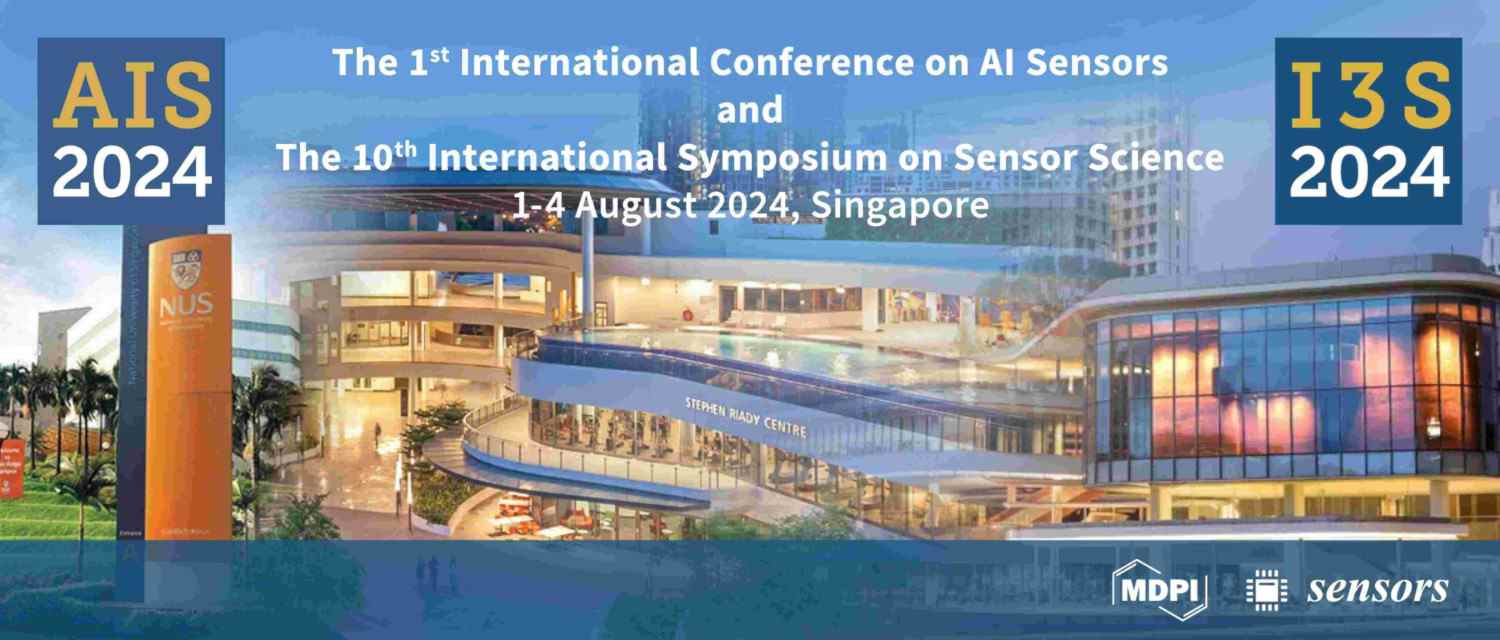Journal Description
Digital
Digital
is an international, peer-reviewed, open access journal on digital technologies and digital application, particularly with how such technologies affect our health, education and economy, published quarterly online by MDPI.
- Open Access— free for readers, with article processing charges (APC) paid by authors or their institutions.
- High Visibility: indexed within Scopus, EBSCO, and other databases.
- Rapid Publication: manuscripts are peer-reviewed and a first decision is provided to authors approximately 22.7 days after submission; acceptance to publication is undertaken in 3.5 days (median values for papers published in this journal in the second half of 2023).
- Recognition of Reviewers: APC discount vouchers, optional signed peer review, and reviewer names published annually in the journal.
Latest Articles
A Digital Vaccination Pass Using Fast Healthcare Interoperability Resources: A Proof of Concept
Digital 2024, 4(2), 389-409; https://0-doi-org.brum.beds.ac.uk/10.3390/digital4020019 (registering DOI) - 24 Apr 2024
Abstract
The traditional manual recording of vaccination records in Germany faced challenges during the COVID-19 pandemic, prompting the introduction of a COVID smartphone app with QR codes. However, this solution brought new challenges, emphasizing the need for a centrally managed European digital vaccination record
[...] Read more.
The traditional manual recording of vaccination records in Germany faced challenges during the COVID-19 pandemic, prompting the introduction of a COVID smartphone app with QR codes. However, this solution brought new challenges, emphasizing the need for a centrally managed European digital vaccination record for efficiency and validity. This study assesses the feasibility of using the HL7 FHIR standard in the healthcare industry for implementing a digital vaccination pass management and monitoring system. The system aims to offer convenience and improved efficiency for both patients and healthcare providers while promoting interoperability with other healthcare systems. To this end, we developed a prototype using modern technologies, such as React, Quarkus, and Keycloak. Results indicate potential benefits for patients and healthcare providers, offering access to immunization records, personalized recommendations, and streamlined management. However, integrating nuanced vaccination processes into the standardized FHIR system requires custom extensions, which might hinder interoperability. Manual data entry and the integration of an identity provider present further obstacles in industry scenarios. Despite these challenges, this study suggests that implementing HL7 FHIR can enhance efficiency, data accessibility, and accuracy in the vaccination process, supporting broader digitization efforts in the German healthcare system and beyond.
Full article
Open AccessArticle
Key Challenges of Cloud Computing Resource Allocation in Small and Medium Enterprises
by
Abdulghafour Mohammad and Yasir Abbas
Digital 2024, 4(2), 372-388; https://0-doi-org.brum.beds.ac.uk/10.3390/digital4020018 (registering DOI) - 23 Apr 2024
Abstract
►▼
Show Figures
Although cloud computing offers many benefits, such as flexibility, scalability, and profitability, some small and medium enterprises (SMEs) are still unable to fully utilize cloud resources, such as memory, computing power, storage, and network bandwidth. This reduces their productivity and increases their expenses.
[...] Read more.
Although cloud computing offers many benefits, such as flexibility, scalability, and profitability, some small and medium enterprises (SMEs) are still unable to fully utilize cloud resources, such as memory, computing power, storage, and network bandwidth. This reduces their productivity and increases their expenses. Therefore, the central objective of this paper was to examine the key challenges related to the allocation of cloud computing resources in small and medium enterprises. The method used for this study is based upon qualitative research using 12 interviews with 12 owners, managers, and experts in cloud computing in four countries: the United States of America, the United Kingdom, India, and Pakistan. Our results, based on our empirical data, show 11 key barriers to resource allocation in cloud computing that are classified based on the technology, organization, and environment (TOE) framework. Theoretically, this research contributes to the body of knowledge concerning cloud computing technology and offers valuable understanding of the cloud computing resource allocation approaches employed by small and medium enterprises (SMEs). In practice, this research is useful to aid SMEs in implementing successful and sustainable strategies for allocating cloud computing resources.
Full article
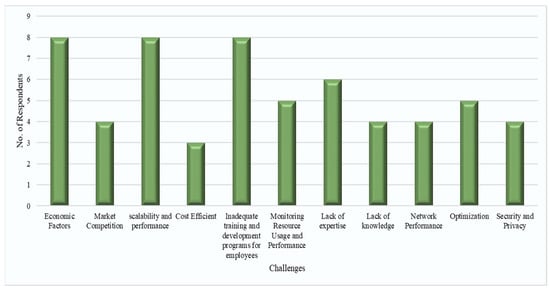
Figure 1
Open AccessArticle
Data-Driven Enterprise Architecture for Pharmaceutical R&D
by
Nailya Uzhakova (née Sabirzyanova) and Stefan Fischer
Digital 2024, 4(2), 333-371; https://0-doi-org.brum.beds.ac.uk/10.3390/digital4020017 - 22 Apr 2024
Abstract
This paper addresses the research gap in the realm of data-driven transformation by leveraging the Resource-Based View (RBV) theory and the dynamic capabilities concept to the contours of a data-driven enterprise. It confronts the limitations of conventional digital and data transformation programs, which
[...] Read more.
This paper addresses the research gap in the realm of data-driven transformation by leveraging the Resource-Based View (RBV) theory and the dynamic capabilities concept to the contours of a data-driven enterprise. It confronts the limitations of conventional digital and data transformation programs, which often prioritize technological enhancements over crucial organizational and cultural shifts. Proposing a more holistic perspective, the Data-Driven Enterprise Architecture Framework (DDA) is introduced, emphasizing the domain decomposition and productization of an architecture, distributed ownership, and federated governance, while ensuring the continuous harmonization of data, application, and business architecture. A case study featuring a leading pharmaceutical company illustrates the practical implementation of the DDA framework as a pillar of their Digital Transformation Strategy. By integrating scalable and distributed data architecture into the overarching Enterprise Architecture landscape, the company has initiated their data-driven transformation journey, showcased through their initial and very early results. This research not only offers valuable insights for pharmaceutical organizations navigating the complexities of data-driven transformations, but also addresses a research gap in the field.
Full article
(This article belongs to the Special Issue The Digital Transformation of Healthcare)
►▼
Show Figures
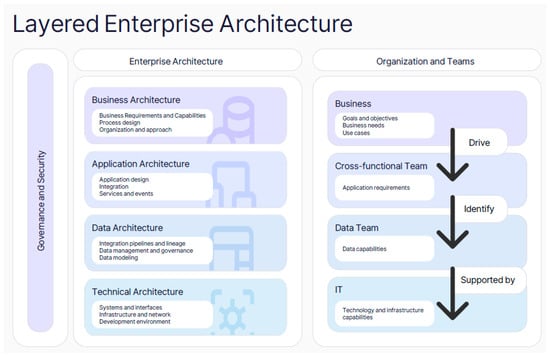
Figure 1
Open AccessArticle
Generative Artificial Intelligence Image Tools among Future Designers: A Usability, User Experience, and Emotional Analysis
by
Joana Casteleiro-Pitrez
Digital 2024, 4(2), 316-332; https://0-doi-org.brum.beds.ac.uk/10.3390/digital4020016 - 17 Apr 2024
Abstract
Generative Artificial Intelligence (GenAI) image tools hold the promise of revolutionizing a designer’s creative process. The increasing supply of this type of tool leads us to consider whether they suit future design professionals. This study aims to unveil if three GenAI image tools—Midjourney
[...] Read more.
Generative Artificial Intelligence (GenAI) image tools hold the promise of revolutionizing a designer’s creative process. The increasing supply of this type of tool leads us to consider whether they suit future design professionals. This study aims to unveil if three GenAI image tools—Midjourney 5.2, DreamStudio beta, and Adobe Firefly 2—meet future designers’ expectations. Do these tools have good Usability, show sufficient User Experience (UX), induce positive emotions, and provide satisfactory results? A literature review was performed, and a quantitative empirical study based on a multidimensional analysis was executed to answer the research questions. Sixty users used the GenAI image tools and then responded to a holistic evaluation framework. The results showed that while the GenAI image tools received favorable ratings for Usability, they fell short in achieving high scores, indicating room for improvement. None of the platforms received a positive evaluation in all UX scales, highlighting areas for enhancement. The benchmark comparison revealed that all platforms, except for Adobe Firefly’s Efficiency scale, require enhancements in pragmatic and hedonic qualities. Despite inducing neutral to above-average positive emotions and minimal negative emotions, the overall satisfaction was moderate, with Midjourney aligning more closely with user expectations. This study emphasizes the need for significant improvements in Usability, positive emotional resonance, and result satisfaction, even more so in UX, so that GenAI image tools can meet future designers’ expectations.
Full article
(This article belongs to the Special Issue Digital in 2024)
►▼
Show Figures

Figure 1
Open AccessReview
Digital Communication in the Age of Immediacy
by
Luís Miguel Pedrero-Esteban and Andrés Barrios-Rubio
Digital 2024, 4(2), 302-315; https://0-doi-org.brum.beds.ac.uk/10.3390/digital4020015 - 31 Mar 2024
Abstract
The media has become a central aspect of everyday life, providing information and entertainment, and serving as a basis for citizen consumption. The content that appears on the internet today is the result of numerous experiences accumulated throughout the history of media, particularly
[...] Read more.
The media has become a central aspect of everyday life, providing information and entertainment, and serving as a basis for citizen consumption. The content that appears on the internet today is the result of numerous experiences accumulated throughout the history of media, particularly in the last four decades of technological and social development. The following text analyses how the hybridisation of analogue and digital technologies affects audience consumption patterns and expectations, leading to a more flexible relationship with the media. This study employed a theoretical examination of documentary sources, including texts, articles, and digital materials. The findings indicate a shift from simple, vertical, and linear communication systems to networks that enable horizontal and personalised consumption. The conclusion drawn is that technology has redefined structures and concepts, with the smartphone serving as the focal point of media consumption. Living culture is shaped by technology, because the message, more than the specific content, is the meaning, recognition, and exchange of a world that needs to be re-thought.
Full article
Open AccessArticle
Creating Location-Based Mobile Applications for Tourism: A Virtual AR Guide for Western Macedonia
by
Athanasios Evagelou, Alexandros Kleftodimos and Georgios Lappas
Digital 2024, 4(1), 271-301; https://0-doi-org.brum.beds.ac.uk/10.3390/digital4010014 - 01 Mar 2024
Abstract
Augmented reality (AR) applications are currently used in many fields for communication and educational purposes. Tourism is also a sector where augmented reality is used for destination marketing and cultural heritage promotion. This study will focus on mobile location-based AR applications and their
[...] Read more.
Augmented reality (AR) applications are currently used in many fields for communication and educational purposes. Tourism is also a sector where augmented reality is used for destination marketing and cultural heritage promotion. This study will focus on mobile location-based AR applications and their potential in tourism. Such applications can guide tourists to places of interest and enhance their overall experience. The aim of this paper is to present a mobile application that was created for tourists visiting the region of Western Macedonia, Greece. The application was developed in order to guide the users in the region, entertain them, and educate them about the region’s sights, cultural heritage, and other special characteristics. The paper also aims to present a large set of features that are present in the application, including various types of AR (marker-based, markerless, and location-based) in order to provide designers who wish to create AR applications for tourism with new ideas. The application was validated by a usability test, and its features were evaluated by 39 participants who completed a questionnaire with 29 Likert-scale items. This procedure revealed the level of acceptance for the application features, and valuable feedback was also received during a discussion with the participants about how the application could be upgraded in the future.
Full article
(This article belongs to the Collection Digital Systems for Tourism)
►▼
Show Figures

Figure 1
Open AccessReview
Decoding the Relationship of Artificial Intelligence, Advertising, and Generative Models
by
Camille Velasco Lim, Yu-Peng Zhu, Muhammad Omar and Han-Woo Park
Digital 2024, 4(1), 244-270; https://0-doi-org.brum.beds.ac.uk/10.3390/digital4010013 - 01 Mar 2024
Abstract
Although artificial intelligence technologies have provided valuable insights into the advertising industry, more comprehensive studies that properly examine the applications of AI in advertising using scientometric network analysis are needed. Using publications from journals indexed in the Web of Science, we seek to
[...] Read more.
Although artificial intelligence technologies have provided valuable insights into the advertising industry, more comprehensive studies that properly examine the applications of AI in advertising using scientometric network analysis are needed. Using publications from journals indexed in the Web of Science, we seek to analyze the emergence of AI through the examination of keyword co-occurrences and co-authorship. Our goal is to identify essential concepts and influential research that have significantly impacted the advertising business. The findings highlight noteworthy patterns, indicating the growing importance of machine learning tools and techniques such as deep learning, and advanced natural language processing methods like word2vec, GANs, and others, as well as their societal impacts as they continue to define the future of advertising practices.
Full article
(This article belongs to the Special Issue Digital in 2024)
►▼
Show Figures
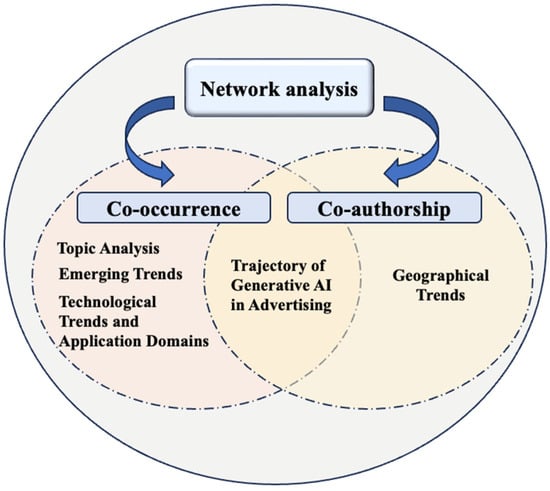
Figure 1
Open AccessArticle
Quality Control Methods Using Quality Characteristics in Development and Operations
by
Daiju Kato and Hiroshi Ishikawa
Digital 2024, 4(1), 232-243; https://0-doi-org.brum.beds.ac.uk/10.3390/digital4010012 - 01 Mar 2024
Abstract
Since the Software Quality Model was defined as an international standard, many quality assurance teams have used this quality model in a waterfall model for software development and quality control. As more software is delivered as a cloud service, various methodologies have been
[...] Read more.
Since the Software Quality Model was defined as an international standard, many quality assurance teams have used this quality model in a waterfall model for software development and quality control. As more software is delivered as a cloud service, various methodologies have been created with an awareness of the link between development productivity and operations, enabling faster development. However, most development methods are development-oriented with awareness of development progress, and there has been little consideration of methods that achieve quality orientation for continuous quality improvement and monitoring. Therefore, we developed a method to visualize the progress of software quality during development by defining quality goals in the project charter using the quality model defined in international standards, classifying each test by quality characteristics, and clarifying the quality ensured by each test. This was achieved by classifying each test by quality characteristics and clarifying the quality ensured by each test. To use quality characteristics as KPIs, it is necessary to manage test results for each test type and compare them with past build results. This paper explains how to visualize the quality to be assured and the benefits of using quality characteristics as KPIs and proposes a method to achieve rapid and high-quality product development.
Full article
(This article belongs to the Special Issue “Management of Digital Ecosystems”: Dedicated to the Memory of Prof. William I. Grosky 8/4/1944–11/13/2020)
►▼
Show Figures

Figure 1
Open AccessArticle
An Improved Approach for Generating Digital Twins of Cultural Spaces through the Integration of Photogrammetry and Laser Scanning Technologies
by
Markos Konstantakis, Georgios Trichopoulos, John Aliprantis, Nikitas Gavogiannis, Anna Karagianni, Panos Parthenios, Konstantinos Serraos and George Caridakis
Digital 2024, 4(1), 215-231; https://0-doi-org.brum.beds.ac.uk/10.3390/digital4010011 - 16 Feb 2024
Abstract
The paper introduces an innovative methodology that combines photogrammetry and laser scanning techniques to create detailed 3D models of historic mansions within the Kifissia region of Attica, Greece. While photogrammetry excels in capturing intricate textures, it faces challenges such as lighting variations and
[...] Read more.
The paper introduces an innovative methodology that combines photogrammetry and laser scanning techniques to create detailed 3D models of historic mansions within the Kifissia region of Attica, Greece. While photogrammetry excels in capturing intricate textures, it faces challenges such as lighting variations and precise image alignment. On the other hand, laser scanning offers precision in capturing geometric details but struggles with reflective surfaces and large datasets. Our study integrates these methods to leverage their strengths and address limitations, resulting in comprehensive and accurate digital twins of cultural spaces. The methodology section outlines the step-by-step process of integration, emphasizing solutions to specific challenges encountered in the study area. Preliminary results showcase the enhanced fidelity and completeness of the digital twins, demonstrating the effectiveness of the combined approach. The subsequent sections of the paper delve into a detailed presentation of the methodology, provide a comprehensive analysis of obtained results, and discuss the implications of this innovative approach in cultural preservation and broader applications.
Full article
(This article belongs to the Special Issue Digital in 2024)
►▼
Show Figures
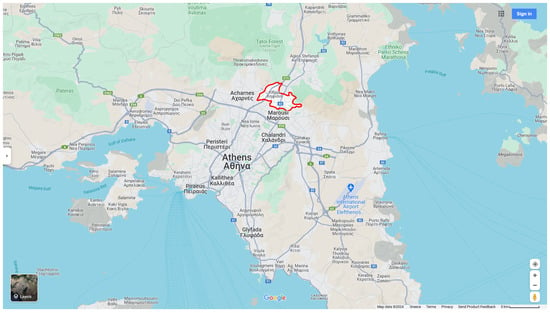
Figure 1
Open AccessArticle
The Effects of Augmented Reality on Very Young Learners’ Motivation and Learning of the Alphabet and Vocabulary
by
Eleni Korosidou
Digital 2024, 4(1), 195-214; https://0-doi-org.brum.beds.ac.uk/10.3390/digital4010010 - 13 Feb 2024
Abstract
This study aspires to contribute some initial results to the growing area of research regarding technology potential in the field of early foreign language literacy. An experiment was conducted to examine very young learners’ alphabet and vocabulary learning and retention in an early
[...] Read more.
This study aspires to contribute some initial results to the growing area of research regarding technology potential in the field of early foreign language literacy. An experiment was conducted to examine very young learners’ alphabet and vocabulary learning and retention in an early foreign language (FL) learning context when implementing augmented reality (AR) applications, while very young learners’ motivation was also assessed. A pilot intervention was implemented in a state school in northern Greece. The participants (n = 26) were primary school first-graders (5.5–6 years old) and were assigned into two groups, experimental (13) and control (13). To examine the effects of the intervention, this current study employed two instruments: (a) a pre-test–post-test model to assess young learners’ alphabet and vocabulary learning during three phases and (b) a questionnaire to assess their motivation during the learning process. The findings of this study reveal that both groups displayed significant improvements in FL alphabet and vocabulary learning; however, there are statistical differences in favor of the experimental group regarding long-term alphabet and vocabulary learning and retention. Furthermore, qualitative results regarding children’s perceptions of the technology used indicate that AR was highly appealing and motivating to participating students.
Full article
(This article belongs to the Collection Multimedia-Based Digital Learning)
►▼
Show Figures
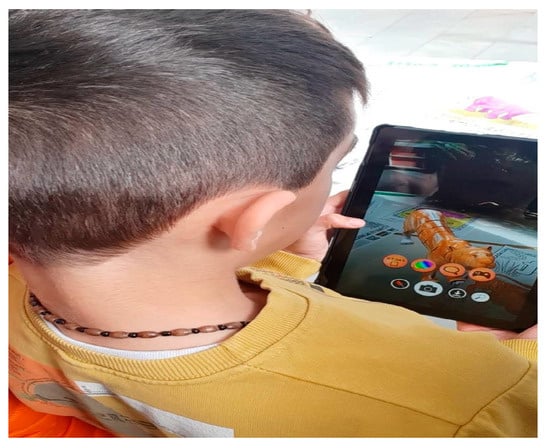
Figure 1
Open AccessOpinion
On Enhancing the COVID-19 Certification System for the Digitally-Illiterate People Inclusion in the European Union
by
Bartłomiej Hadasik and Maria Mach-Król
Digital 2024, 4(1), 182-194; https://0-doi-org.brum.beds.ac.uk/10.3390/digital4010009 - 11 Feb 2024
Abstract
The COVID-19 pandemic led to widespread restrictions globally, prompting governments to implement measures for containment. Vaccines, while aiding in reducing virus transmission, have also introduced the challenge of identifying vaccinated individuals for the purpose of easing restrictions. The European Union (EU) addressed this
[...] Read more.
The COVID-19 pandemic led to widespread restrictions globally, prompting governments to implement measures for containment. Vaccines, while aiding in reducing virus transmission, have also introduced the challenge of identifying vaccinated individuals for the purpose of easing restrictions. The European Union (EU) addressed this through the “digital COVID-19 certification” system, allowing citizens to travel within the EU based on their vaccination, recovery, or negative test status. However, the system’s digital format poses challenges for those who are not digitally proficient, such as seniors and those with low educational or socioeconomic status. This study aims to propose enhancements to the current system, considering the mobility needs of all citizens. The methodology involves reviewing literature on digital literacy, the digital divide, and information systems related to vaccination and certification. The paper presents straightforward recommendations to make the COVID-19 certificate more accessible to digitally excluded individuals. These proposals may serve as a valuable starting point for healthcare executives to evaluate and adapt the certification scheme to be inclusive of a broader range of stakeholders.
Full article
(This article belongs to the Special Issue Digital Healthcare in Pandemics)
►▼
Show Figures
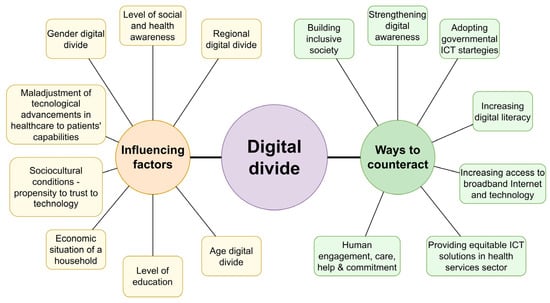
Figure 1
Open AccessArticle
Contribution of Social Media Addiction on Intention to Buy in Social Media Sites
by
Ângela Leite, Anabela Rodrigues, Ana Margarida Ribeiro and Sílvia Lopes
Digital 2024, 4(1), 169-181; https://0-doi-org.brum.beds.ac.uk/10.3390/digital4010008 - 01 Feb 2024
Abstract
►▼
Show Figures
The aim of this study is to assess whether social media addiction contributes to the intention to buy; it is based on the model of Hajli (2014) that assesses the relationships between the constructs of social media use, trust, perceived usefulness, and intention
[...] Read more.
The aim of this study is to assess whether social media addiction contributes to the intention to buy; it is based on the model of Hajli (2014) that assesses the relationships between the constructs of social media use, trust, perceived usefulness, and intention to buy in social media sites. To this end, a confirmatory factor analysis was carried out to evaluate whether the Hajli model applied to this sample, as well as multigroup CFA to measure invariance across gender and across following influencers or not. Finally, the path analysis evaluates the intersection of social media addiction with the Hajli model (2014). The results confirmed the Hajli model as well as the inclusion in the model of social media addiction as a variable that contributes to purchase intention on social media. Configural, metric, and scalar invariance were found across genders and across the following influencers or not. Also, the values found for internal consistency and composite reliability, convergent reliability, and discriminant reliability were within the reference values.
Full article
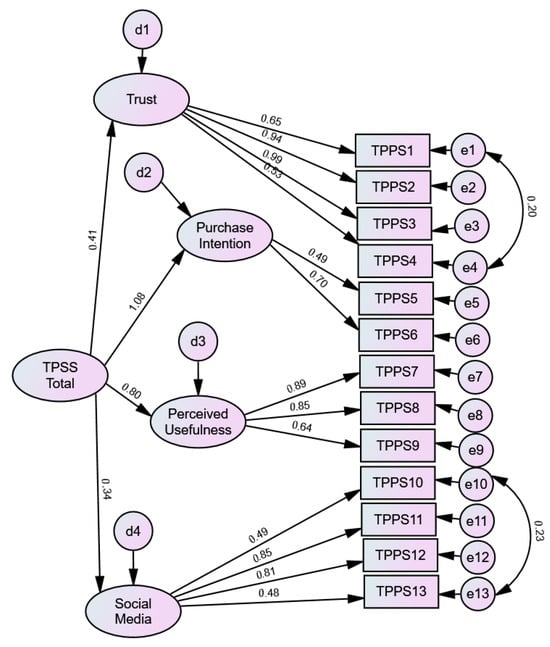
Figure 1
Open AccessArticle
Aleppo Pixelated: An Urban Reading through Digitized Historical Maps and High-Resolution Orthomosaics Case Study of al-ʿAqaba and al-Jallūm Quarters
by
Rahaf Orabi
Digital 2024, 4(1), 152-168; https://0-doi-org.brum.beds.ac.uk/10.3390/digital4010007 - 23 Jan 2024
Abstract
►▼
Show Figures
This article relies on a combination of digital and analog data to analyze the 2D urban development of al-ʿAqaba and Jallūm districts in the Old City of Aleppo. The dataset consists of vectorized historical maps of the city spanning various historical periods. The
[...] Read more.
This article relies on a combination of digital and analog data to analyze the 2D urban development of al-ʿAqaba and Jallūm districts in the Old City of Aleppo. The dataset consists of vectorized historical maps of the city spanning various historical periods. The oldest map in the collection dates back to the 1900s. Additionally, there are high-resolution orthomosaics created from a 3D model obtained through Terrestrial Laser Scanning (TLS) and Aerial Photogrammetry techniques. Through the analysis and integration of these various data types, the article proposes an analog-digital workflow that tracks the alterations in the urban fabric of the designated study area. The analysis primarily examines the alterations in the city’s two-dimensional layout and the distribution of mass and void. Tracking the changes in the street network of the studied area is the main goal of this research, along with recognizing the spatial changes in the built environment. The article identified changes in both the open spaces and the street layout.
Full article
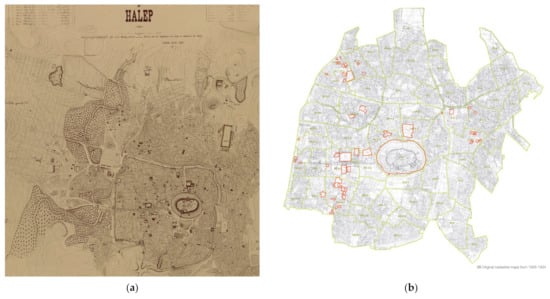
Figure 1
Open AccessArticle
Emotions during the Pandemic’s First Wave: The Case of Greek Tweets
by
Yannis Skarpelos, Sophia Messini, Elina Roinioti, Kostas Karpouzis, Stavros Kaperonis and Michaela-Gavriela Marazoti
Digital 2024, 4(1), 126-151; https://0-doi-org.brum.beds.ac.uk/10.3390/digital4010006 - 08 Jan 2024
Abstract
►▼
Show Figures
While most published research on COVID-19 focused on a few countries and especially on the second wave of the pandemic and the vaccination period, we turn to the first wave (March–May 2020) to examine the sentiments and emotions expressed by Twitter users in
[...] Read more.
While most published research on COVID-19 focused on a few countries and especially on the second wave of the pandemic and the vaccination period, we turn to the first wave (March–May 2020) to examine the sentiments and emotions expressed by Twitter users in Greece. Using deep-learning techniques, the analysis reveals a complex interplay of surprise, anger, fear, and sadness. Initially, surprise was dominant, reflecting the shock and uncertainty accompanying the sudden onset of the pandemic. Anger replaced surprise as individuals struggled with isolation and social distancing. Despite these challenges, positive sentiments of hope, resilience and solidarity were also expressed. The COVID-19 pandemic had a strong imprint upon the emotional landscape worldwide and in Greece. This calls for appealing to emotions as well as to reason when crafting effective public health strategies.
Full article
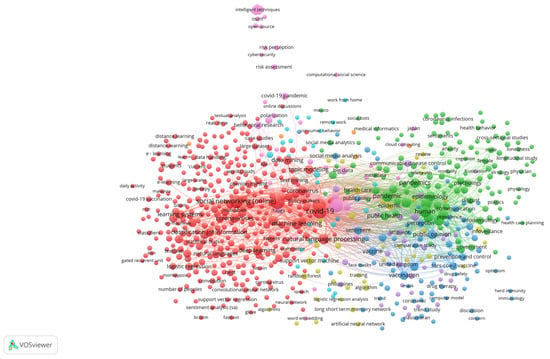
Figure 1
Open AccessArticle
Effectiveness of ChatGPT in Coding: A Comparative Analysis of Popular Large Language Models
by
Carlos Eduardo Andino Coello, Mohammed Nazeh Alimam and Rand Kouatly
Digital 2024, 4(1), 114-125; https://0-doi-org.brum.beds.ac.uk/10.3390/digital4010005 - 08 Jan 2024
Cited by 1
Abstract
►▼
Show Figures
This study explores the effectiveness and efficiency of the popular OpenAI model ChatGPT, powered by GPT-3.5 and GPT-4, in programming tasks to understand its impact on programming and potentially software development. To measure the performance of these models, a quantitative approach was employed
[...] Read more.
This study explores the effectiveness and efficiency of the popular OpenAI model ChatGPT, powered by GPT-3.5 and GPT-4, in programming tasks to understand its impact on programming and potentially software development. To measure the performance of these models, a quantitative approach was employed using the Mostly Basic Python Problems (MBPP) dataset. In addition to the direct assessment of GPT-3.5 and GPT-4, a comparative analysis involving other popular large language models in the AI landscape, notably Google’s Bard and Anthropic’s Claude, was conducted to measure and compare their proficiency in the same tasks. The results highlight the strengths of ChatGPT models in programming tasks, offering valuable insights for the AI community, specifically for developers and researchers. As the popularity of artificial intelligence increases, this study serves as an early look into the field of AI-assisted programming.
Full article
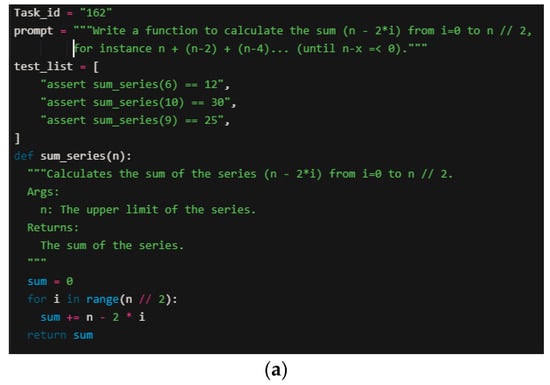
Figure 1
Open AccessArticle
Defect Isolation from Whole to Local Field Separation in Complex Interferometry Fringe Patterns through Development of Weighted Least-Squares Algorithm
by
Zhenkai Chen, Wenjing Zhou, Yingjie Yu, Vivi Tornari and Gilberto Artioli
Digital 2024, 4(1), 104-113; https://0-doi-org.brum.beds.ac.uk/10.3390/digital4010004 - 29 Dec 2023
Abstract
In this paper, based on Gaussian 1σ-criterion and histogram segmentation, a weighted least-squares algorithm is applied and validated on digital holographic speckle pattern interferometric data to perform phase separation on the complex interference fields. The direct structural diagnosis tool is used to investigate
[...] Read more.
In this paper, based on Gaussian 1σ-criterion and histogram segmentation, a weighted least-squares algorithm is applied and validated on digital holographic speckle pattern interferometric data to perform phase separation on the complex interference fields. The direct structural diagnosis tool is used to investigate defects and their impact on a complex antique wall painting of Giotto. The interferometry data is acquired with a portable off-axis interferometer set-up with a phase-shifted reference beam coupled with the object beam in front of the digital photosensitive medium. A digital holographic speckle pattern interferometry (DHSPI) system is used to register digital recordings of interferogram sequences over time. The surface is monitored for as long as it deforms prior to returning to its initial reference equilibrium state prior to excitation. The attempt to separate the whole vs. local defect complex amplitudes from the interferometric data is presented. The main aim is to achieve isolation and visualization of each defect’s impact amplitude in order to obtain detailed documentation of each defect and its structural impact on the surface for structural diagnosis purposes.
Full article
(This article belongs to the Topic Research on the Application of Digital Signal Processing)
►▼
Show Figures
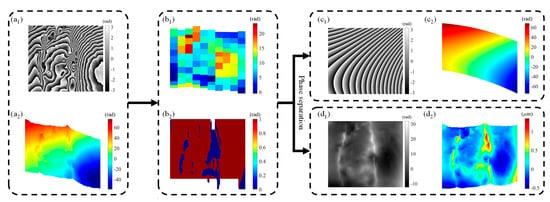
Figure 1
Open AccessArticle
Bias Reduction News Recommendation System
by
Shaina Raza
Digital 2024, 4(1), 92-103; https://0-doi-org.brum.beds.ac.uk/10.3390/digital4010003 - 28 Dec 2023
Abstract
►▼
Show Figures
News recommender systems (NRS) are crucial for helping users navigate the vast amount of content available online. However, traditional NRS often suffer from biases that lead to a narrow and unfair distribution of exposure across news items. In this paper, we propose a
[...] Read more.
News recommender systems (NRS) are crucial for helping users navigate the vast amount of content available online. However, traditional NRS often suffer from biases that lead to a narrow and unfair distribution of exposure across news items. In this paper, we propose a novel approach, the Contextual-Dual Bias Reduction Recommendation System (C-DBRRS), which leverages Long Short-Term Memory (LSTM) networks optimized with a multi-objective function to balance accuracy and diversity. We conducted experiments on two real-world news recommendation datasets and the results indicate that our approach outperforms the baseline methods, and achieves higher accuracy while promoting a fair and balanced distribution of recommendations. This work contributes to the development of a fair and responsible recommendation system.
Full article
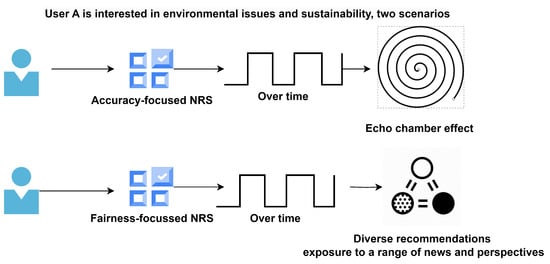
Figure 1
Open AccessArticle
Analysis of the Learning Process of Computer Programming Logic in an 8-Year-Old Elementary School Student at Home through the Scratch Program
by
Victor García
Digital 2024, 4(1), 69-91; https://0-doi-org.brum.beds.ac.uk/10.3390/digital4010002 - 25 Dec 2023
Abstract
This paper presents a study guide and an analysis of its use in the computer programming learning process of an 8-year-old elementary school student through the Scratch program. The research’s objective is to explore and understand how this individual student approaches learning programming
[...] Read more.
This paper presents a study guide and an analysis of its use in the computer programming learning process of an 8-year-old elementary school student through the Scratch program. The research’s objective is to explore and understand how this individual student approaches learning programming skills and tackles challenges within the Scratch environment. An individual case study approach was adopted at home, combining qualitative and quantitative methods to gain a comprehensive insight into the student’s learning process. The study was conducted without grant support, and the researcher actively participated as an educator and observer in the student’s learning sessions. Performance was assessed, and a semi-structured interview was conducted to inquire about the student’s experiences, motivations, and interests regarding programming in Scratch, as well as their feelings after the training. Additionally, the student’s activities during programming sessions were meticulously recorded, and projects created in Scratch were analyzed to assess progress and understanding of concepts. The findings of this research have the potential to contribute to the field of programming education and provide valuable insights into how young elementary school-aged individuals can acquire computer and programming skills in an interactive environment such as Scratch. The results obtained demonstrate that using the proposed guide to introduce elementary school students to programming at home, with parents acting as educators, is feasible. Therefore, it helps facilitate access to this knowledge, which is currently limited for many individuals in an official educational setting.
Full article
(This article belongs to the Collection Multimedia-Based Digital Learning)
►▼
Show Figures
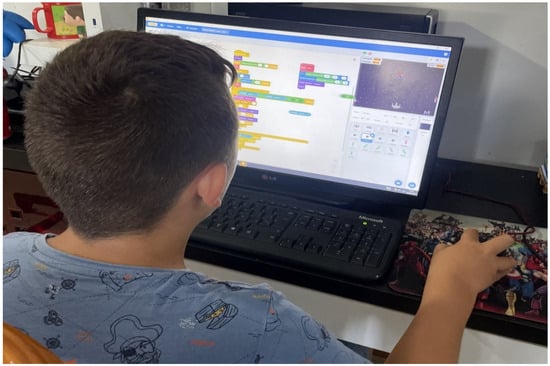
Figure 1
Open AccessArticle
Survey on Machine Learning Biases and Mitigation Techniques
by
Sunzida Siddique, Mohd Ariful Haque, Roy George, Kishor Datta Gupta, Debashis Gupta and Md Jobair Hossain Faruk
Digital 2024, 4(1), 1-68; https://0-doi-org.brum.beds.ac.uk/10.3390/digital4010001 - 20 Dec 2023
Abstract
►▼
Show Figures
Machine learning (ML) has become increasingly prevalent in various domains. However, ML algorithms sometimes give unfair outcomes and discrimination against certain groups. Thereby, bias occurs when our results produce a decision that is systematically incorrect. At various phases of the ML pipeline, such
[...] Read more.
Machine learning (ML) has become increasingly prevalent in various domains. However, ML algorithms sometimes give unfair outcomes and discrimination against certain groups. Thereby, bias occurs when our results produce a decision that is systematically incorrect. At various phases of the ML pipeline, such as data collection, pre-processing, model selection, and evaluation, these biases appear. Bias reduction methods for ML have been suggested using a variety of techniques. By changing the data or the model itself, adding more fairness constraints, or both, these methods try to lessen bias. The best technique relies on the particular context and application because each technique has advantages and disadvantages. Therefore, in this paper, we present a comprehensive survey of bias mitigation techniques in machine learning (ML) with a focus on in-depth exploration of methods, including adversarial training. We examine the diverse types of bias that can afflict ML systems, elucidate current research trends, and address future challenges. Our discussion encompasses a detailed analysis of pre-processing, in-processing, and post-processing methods, including their respective pros and cons. Moreover, we go beyond qualitative assessments by quantifying the strategies for bias reduction and providing empirical evidence and performance metrics. This paper serves as an invaluable resource for researchers, practitioners, and policymakers seeking to navigate the intricate landscape of bias in ML, offering both a profound understanding of the issue and actionable insights for responsible and effective bias mitigation.
Full article

Figure 1
Open AccessReview
The Human Nature of Generative AIs and the Technological Nature of Humanity: Implications for Education
by
Jon Dron
Digital 2023, 3(4), 319-335; https://0-doi-org.brum.beds.ac.uk/10.3390/digital3040020 - 26 Nov 2023
Cited by 3
Abstract
This paper analyzes the ways that the widespread use of generative AIs (GAIs) in education and, more broadly, in contributing to and reflecting the collective intelligence of our species, can and will change us. Methodologically, the paper applies a theoretical model and grounded
[...] Read more.
This paper analyzes the ways that the widespread use of generative AIs (GAIs) in education and, more broadly, in contributing to and reflecting the collective intelligence of our species, can and will change us. Methodologically, the paper applies a theoretical model and grounded argument to present a case that GAIs are different in kind from all previous technologies. The model extends Brian Arthur’s insights into the nature of technologies as the orchestration of phenomena to our use by explaining the nature of humans’ participation in their enactment, whether as part of the orchestration (hard technique, where our roles must be performed correctly) or as orchestrators of phenomena (soft technique, performed creatively or idiosyncratically). Education may be seen as a technological process for developing these soft and hard techniques in humans to participate in the technologies, and thus the collective intelligence, of our cultures. Unlike all earlier technologies, by embodying that collective intelligence themselves, GAIs can closely emulate and implement not only the hard technique but also the soft that, until now, was humanity’s sole domain; the very things that technologies enabled us to do can now be done by the technologies themselves. Because they replace things that learners have to do in order to learn and that teachers must do in order to teach, the consequences for what, how, and even whether learning occurs are profound. The paper explores some of these consequences and concludes with theoretically informed approaches that may help us to avert some dangers while benefiting from the strengths of generative AIs. Its distinctive contributions include a novel means of understanding the distinctive differences between GAIs and all other technologies, a characterization of the nature of generative AIs as collectives (forms of collective intelligence), reasons to avoid the use of GAIs to replace teachers, and a theoretically grounded framework to guide adoption of generative AIs in education.
Full article
(This article belongs to the Topic Education and Digital Societies for a Sustainable World)
Highly Accessed Articles
Latest Books
E-Mail Alert
News
Topics
Topic in
Automation, Buildings, Digital, Energies, Sensors, Smart Cities, Sustainability
Digital Innovation for Realizing the Goals of Construction 5.0
Topic Editors: Miroslaw J. Skibniewski, Hui Liu, Yu Lei, Chunlu LiuDeadline: 31 May 2024
Topic in
Applied Sciences, Computers, Digital, Electronics, Smart Cities
Artificial Intelligence Models, Tools and Applications
Topic Editors: Phivos Mylonas, Katia Lida Kermanidis, Manolis MaragoudakisDeadline: 31 August 2024
Topic in
BDCC, Digital, Information, Mathematics, Systems
Data-Driven Group Decision-Making
Topic Editors: Shaojian Qu, Ying Ji, M. Faisal NadeemDeadline: 31 December 2024
Topic in
AI, Digital, JMSE, Logistics, Systems
Global Maritime Logistics in the Era of Industry 4.0
Topic Editors: Nam Kyu Park, Hokey MinDeadline: 28 February 2025

Conferences
Special Issues
Special Issue in
Digital
Hybrid Artificial Intelligence for Systems and Applications
Guest Editor: Mobyen Uddin AhmedDeadline: 30 October 2024
Topical Collections
Topical Collection in
Digital
Digital Systems for Tourism
Collection Editors: Costas Vassilakis, George Lepouras, Manolis Wallace





